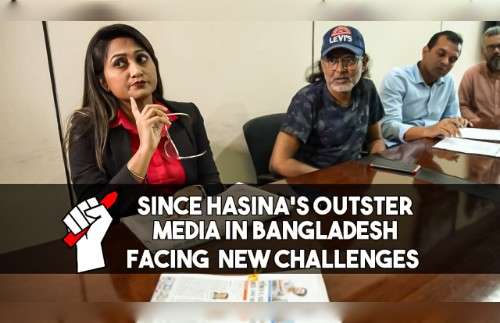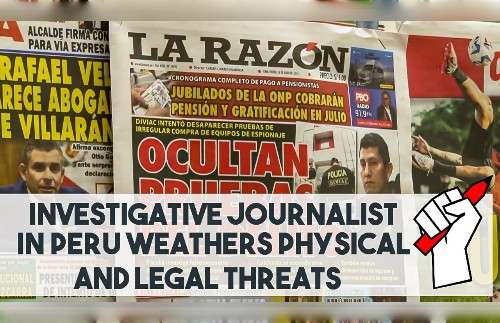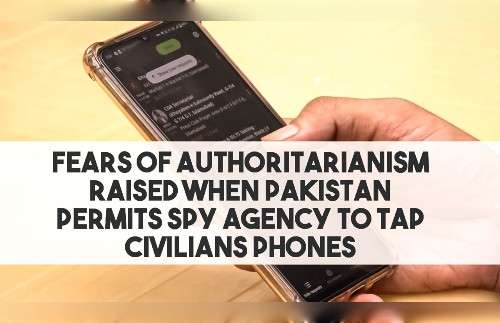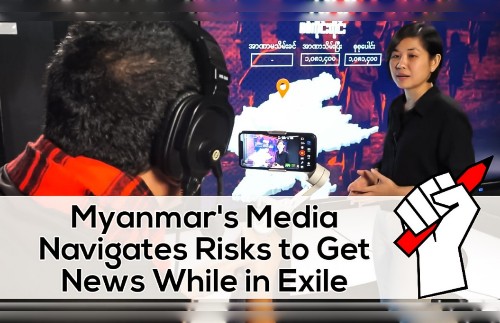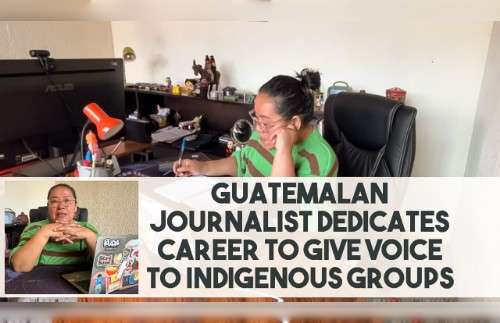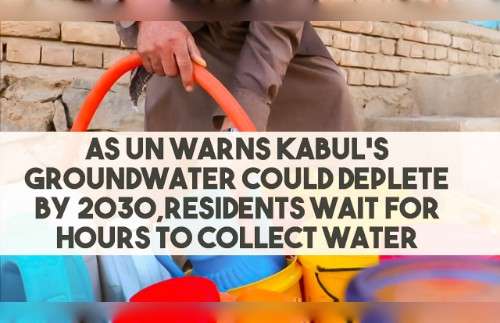Frud Bezhan and Daud Khattak
“This channel is currently unavailable due to a technical issue. Sorry for inconvenience.”
That was the abrupt English-language message seen by millions of viewers watching three Pakistani television channels — Abb Takk TV, 24 News, and Capital TV — when they were suddenly taken off the air on July 6.
The three private networks had broadcast a live press conference held by Maryam Nawaz, an opposition leader and the daughter of jailed former Prime Minister Nawaz Sharif, who was controversially removed from power in 2017 and has a long history of falling out with the country’s powerful military.
Nawaz, who received a suspended prison sentence on corruption charges, gave a press conference that featured a judge claiming he had been blackmailed into convicting the former premier.
Pakistani authorities said the channels were unavailable due to “technical issues.” But Reporters Without Borders (RSF) described the outage as an act of “brazen censorship.”
RSF said in a July 9 statement that the TV channels were “deliberately removed at the behest of the Pakistan Electronic Media Regulatory Authority (PEMRA), the all-powerful broadcast media regulator that takes its lead from the military establishment.”
The move came as Prime Minister Imran Khan’s government pledged to block any media coverage and interviews with politicians “who are convicts and under trial,” according to the Dawn newspaper.
The incident came as Pakistan’s free press finds itself under unprecedented pressure from the military — an institution that has an oversize role in domestic and foreign affairs in the South Asian country of some 212 million people.
The independent media has suffered a spate of blows in recent years.
Several veteran reporters in Pakistan have left journalism after being threatened; private Geo TV was forced off the air; authorities have disrupted the distribution of Dawn, Pakistan’s oldest English-language newspaper; and leading columnists have complained that stories deemed to be critical of the army are being rejected by outlets under pressure from the military.
Criticism of the army has long been seen as a red line for the media, with journalists and bloggers complaining of intimidation tactics including kidnappings, beatings, and even killings if they cross that line.
Aniqa Nisar, a Capital TV journalist, tweeted on July 8 that taking the three channels off the air “without reason, without notice” was “absurd,” adding the hashtag #JournalismIsNotACrime
Ameer Abbas, an anchor at the private Bol News, said it was an “inappropriate” and “shameful” way of regulating the media
‘Not Living In A Free Country’
On July 1, reporter Hamid Mir’s recorded interview with opposition politician and former President Asif Ali Zardari on Pakistan’s most popular TV station, Geo News, was suddenly cut short when screens went black. Zardari is facing corruption charges over a money-laundering case.

Geo News did not give a reason why it cut the interview just minutes after it began. But Mir tweeted shortly afterward that it was “easy to understand who stopped [the interview].”
“Those who stopped it have no courage to accept publicly that they stopped it,” he said.
“We are not living in a free country,” he said in another tweet.
Mir told RFE/RL that “my television management told me that they were under pressure to stop the [Zardari] interview,” adding that he believes “that this pressure could not be from the civilian government” and “there must be someone else behind all this.”
Geo TV and the military have been at odds since 2014, when Geo TV anchor and journalist Hamid Mir was shot in the port city of Karachi. Mir accused the military’s Inter-Services Intelligence (ISI) spy agency of ordering the assassination attempt.
Geo TV publicly backed Mir’s claims, while the military denied any involvement.
“This utterly arbitrary interruption of programming bears the hallmarks of the military establishment, which is always quick to censor content it would probably dislike,” said Daniel Bastard, the head of RSF’s Asia-Pacific desk.
Former Pakistani journalist Mohammad Malick said in a tweet on July 1 that “free speech is hardly free anymore.” “Coercion may work in [the] short term but ultimately it consumes the perpetrator itself.”
“The country is under siege by its armed forces,” said British-Pakistani journalist and rights activist Gul Bukhari in a tweet on July 1.
Hashtag Hate
Meanwhile, a hashtag calling for the arrest of journalists became the top Twitter trend in Pakistan last week.
Pakistani Twitter users accompanied the #ArrestAntiPakjournalists hashtag with a composite photograph of prominent journalists and TV anchors, many known for their criticism of Khan’s governing Pakistan Tehrik-e Insaf (PTI) and the military establishment.
Media Matters for Democracy, an independent monitoring group in Pakistan, said the hashtag started trending on July 4 following a tweet from Team #IK Warriors (@Ik_Warriors).
The account announced the “launch” of the hashtag “#ArrestAntiPakJournalists” and called on followers to “grab the keyboard and start trending,” along with a picture of the journalists and anchors alleged to be “the members of pro-India, anti-Pak media groups.”
Among the prominent independent journalists pictured was Mir.
Meanwhile, two reporters and a TV anchor known for their criticism of the government and the army were forced to deactivate their social-media accounts.
The Twitter accounts of reporters Umer Cheema and Azaz Syed as well as anchor Wajih Sani were no longer active. Cheema has more than 1 million followers on Twitter.
Bol News anchor Mureed Abbas and his friend were shot dead in the port city of Karachi on July 9. Authorities said the killings were over a personal dispute.
Deteriorating Press Freedom
The Committee to Protect Journalists (CPJ) said in a report released in September that the climate for press freedom in Pakistan was deteriorating as the country’s army “quietly, but effectively” restricts reporting through “intimidation” and other means.
The report said journalists who push back or are overly critical of authorities are attacked, threatened, or arrested. The CPJ also said the Pakistani military, intelligence, and military-affiliated political groups are suspected in the killings of 22 reporters in the past decade.
Pakistan is ranked 142nd out of 180 countries in RSF’s 2019 World Press Freedom Index, three places lower than it was in 2018.
Copyright (c) 2019. RFE/RL, Inc. Reprinted with the permission of Radio Free Europe/Radio Liberty, 1201 Connecticut Ave NW, Ste 400, Washington DC 20036
Featured Image Courtesy: Facebook/ Pakistan TV Anchors






